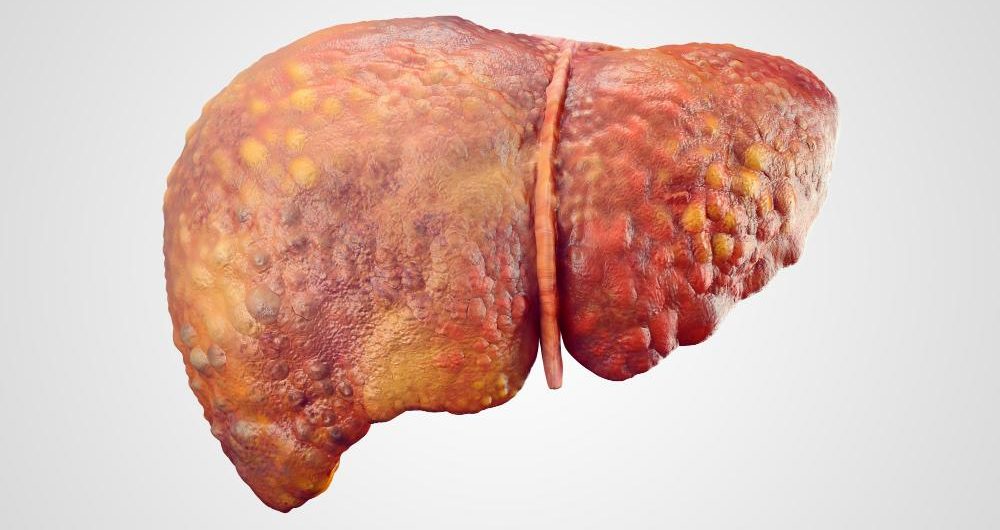
Cirrhosis is a condition where your liver becomes permanently scarred and damaged over time. As cirrhosis progresses, more and more scar tissue builds up, replacing healthy liver tissue. This scarring interferes with the liver’s normal functions like filtering toxins from the blood, producing proteins, and regulating various metabolic processes. As a result, this condition can lead to liver failure and life-threatening complications.
Liver damage caused by cirrhosis is usually irreversible. However, if the condition is detected early and the underlying cause is addressed promptly, further damage can be minimized.
You may not experience any symptoms during the initial stages. Once your liver reaches the point where it can not work normally, you may have:
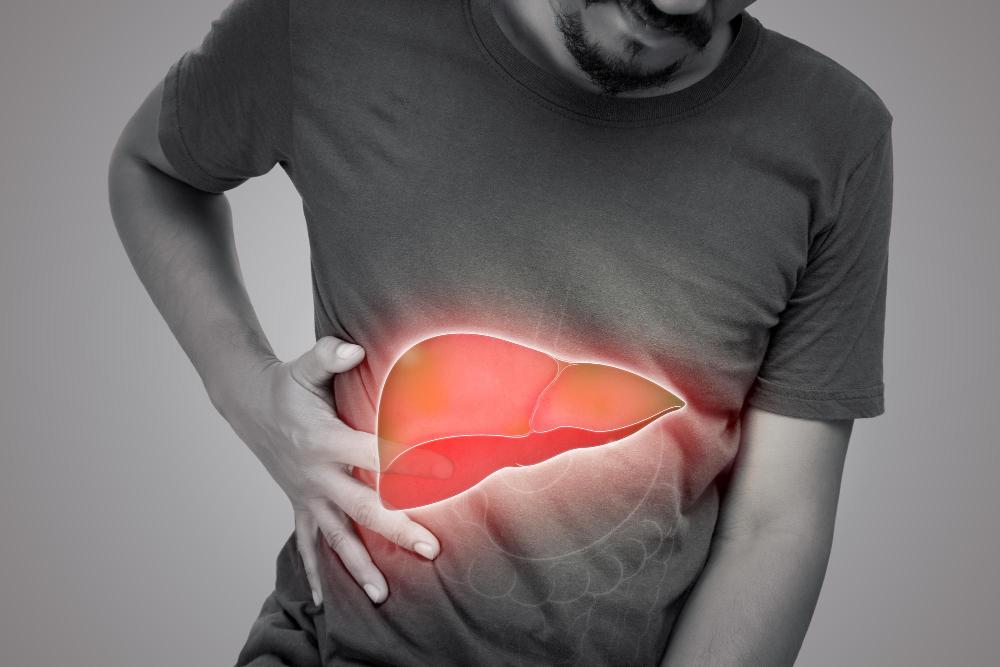

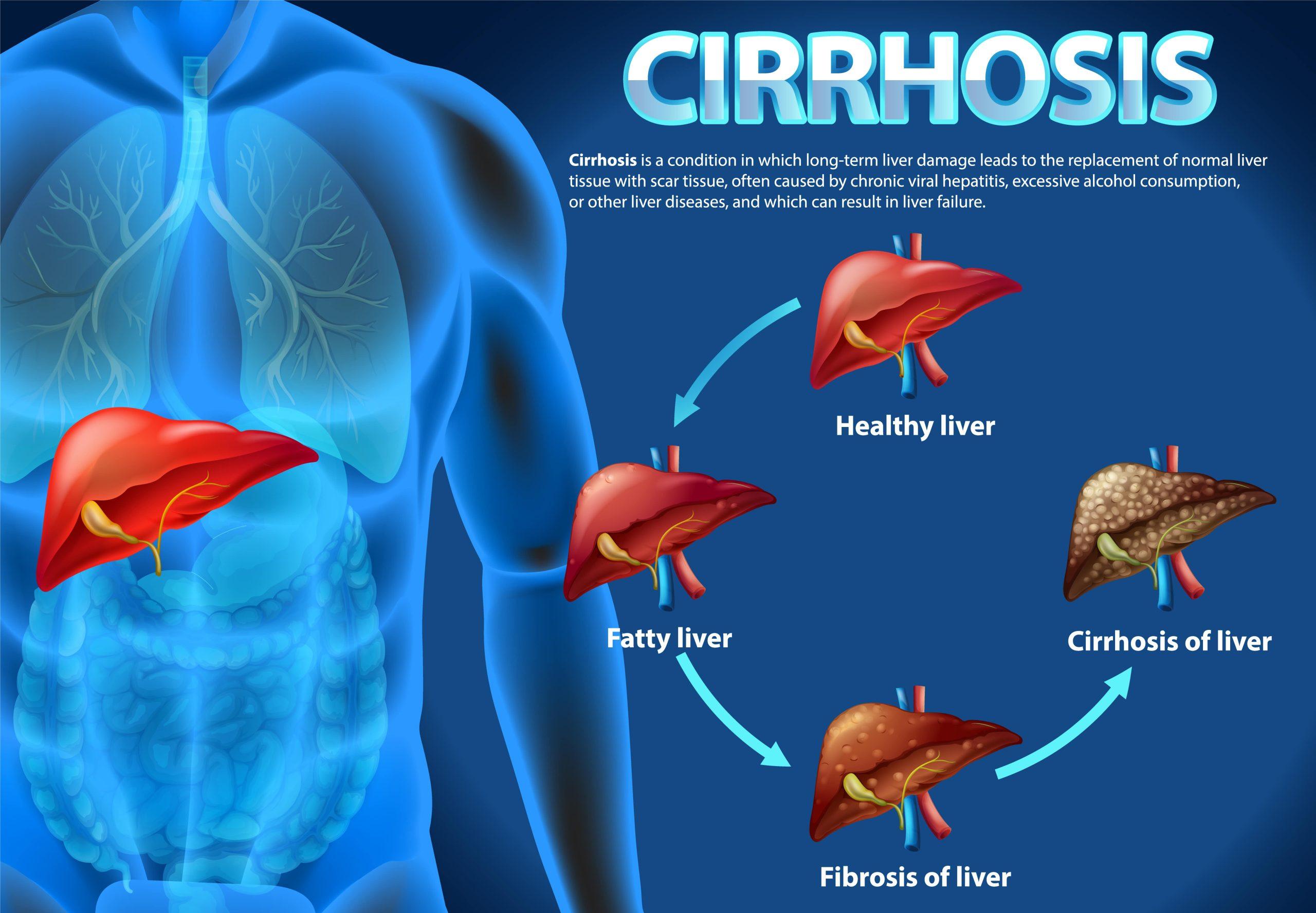
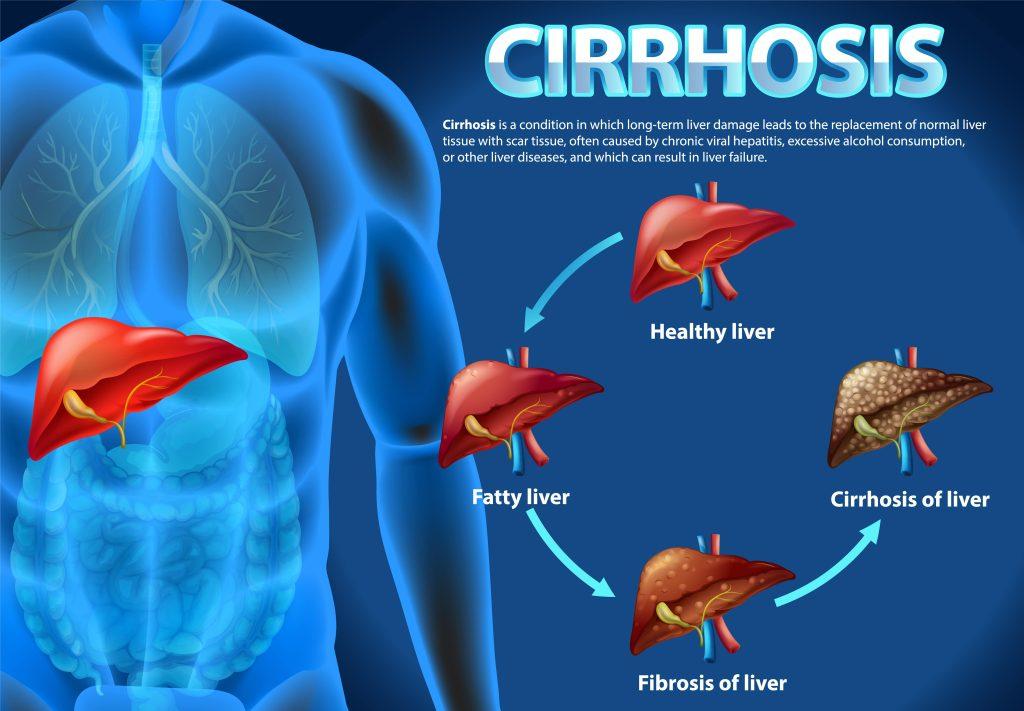
As the disease progresses, you may experience:

Whenever your liver is injured or damaged, it tries to repair itself, but this healing process leads to the formation of scar tissue. It is usually caused by long-term liver diseases. This may include various factors, such as prolonged alcohol consumption, viral infections like Hepatitis A, B, or C, non-alcoholic fatty liver disease (‘fatty liver’), blockages in blood vessels supplying the liver, liver cancer, genetic disorders, or other conditions that harm the liver.
To identify and address the underlying cause on time, consult an experienced cirrhosis treatment doctor in Hyderabad
You might be at a greater risk if you:
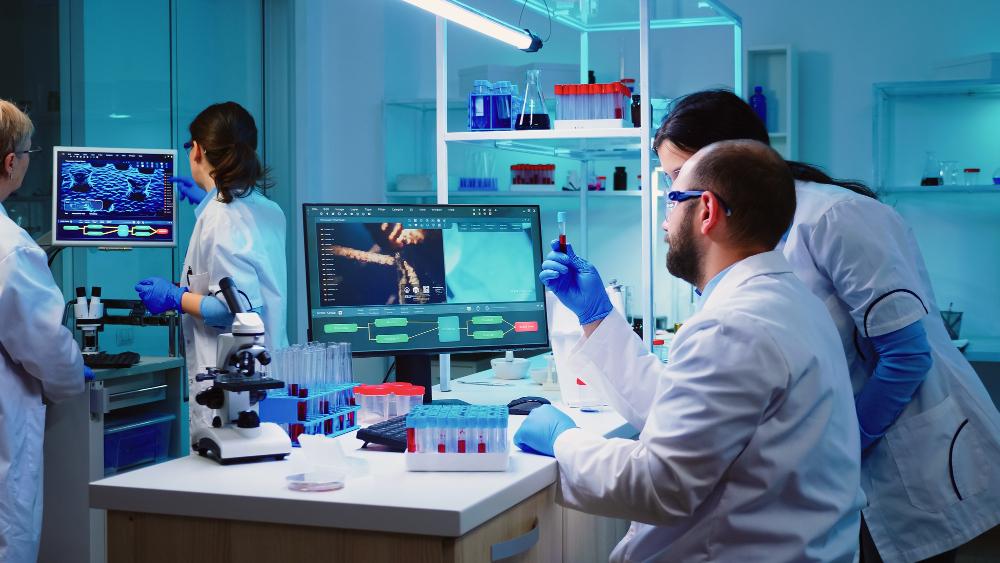
Diagnosing cirrhosis involves a step-by-step approach. The doctor will first conduct a physical examination, looking for signs and symptoms of cirrhosis and inquiring about the timeline and changes in symptoms.
Your medical history, medication usage, dietary habits, and lifestyle will also be discussed.

Laboratory Tests: Several blood tests are used to assess liver function and to look for signs of liver damage. Commonly ordered liver function tests include:
Additionally, specific viral hepatitis markers (e.g., HBsAg, anti-HCV antibodies) and tests for other causes of liver disease may be performed.
Imaging tests: Abdominal ultrasound, CT scan, or MRI can show the size, shape, and texture of your liver. Elastography, a special type of imaging, assesses the stiffness or fibrosis level in your liver using ultrasound or MRI technology.
Liver biopsy: This minor procedure involves taking a small tissue sample from your liver using a hollow needle. While not always necessary, a liver biopsy can confirm cirrhosis and help determine its cause.


Cirrhosis causes permanent damage in your liver that cannot be reversed. While your liver has good healing abilities in general, cirrhosis is a stage of illness in which it no longer has enough healthy cells to repair itself.
However, the cause of the disease can be treated. Also, there are ways to manage its symptoms and prevent the condition from getting worse.
The main goals of the treatment are to slow down scarring in the liver and manage symptoms and complications. If the liver damage is severe, hospitalization might be necessary.
If you develop an advanced stage of cirrhosis, which is also called the third stage or C stage of cirrhosis, a liver transplant may be the only option. This involves replacing the damaged liver with a healthy liver from a donor.
The liver is an important organ, and once the scarring begins, it can’t be reversed but only managed with treatment. Consult surgical gastroenterologist to develop a comprehensive treatment plan and improve the overall prognosis.

It is always advisable to consult with an experienced doctor for personalized advice and an accurate diagnosis. Dr. K V Dinesh Reddy is known for his expertise in Liver Cirrhosis Treatment in Hyderabad With a proven track record of performing multiple liver cancer surgeries, he specializes in liver disease management and gastrointestinal oncological surgeries.
You can trust our expertise and dedication to providing exceptional care for your colorectal cancer treatment.
Reversing liver cirrhosis is a complex challenge. Once scar tissue forms on the liver, it’s generally irreversible. However, early detection and addressing the underlying cause can prevent further damage. Lifestyle changes, like avoiding alcohol and maintaining a healthy diet, play a crucial role. Medications may help manage symptoms and slow down progression. In some cases, liver transplantation is the only viable option for a complete recovery.
No, alcohol is not the sole cause of liver cirrhosis. While excessive alcohol consumption is a significant factor, there are other contributors. Chronic viral infections like hepatitis B and C, fatty liver disease due to obesity, and autoimmune liver diseases can also lead to cirrhosis. It’s crucial to recognize that a combination of factors, including genetic predisposition, can play a role.
Firstly, limit alcohol intake; excessive drinking is a major culprit. A balanced diet is crucial—focus on fruits, veggies, and whole grains while avoiding fried and processed foods. Maintain a healthy weight through regular exercise, as obesity can contribute to liver issues. Steer clear of risky behaviors like sharing needles, as some infections can lead to cirrhosis. Lastly, stay up-to-date on vaccinations, especially for hepatitis.
These simple lifestyle changes can significantly reduce the risk of developing liver cirrhosis, promoting overall liver health.
The severity of liver cirrhosis is determined through a series of tests and evaluations. One key factor is the Child-Pugh score, which considers aspects like the extent of liver damage, blood clotting, and the presence of fluid retention. Additionally, imaging tests such as CT scans or MRIs help visualize the liver’s condition. Blood tests measure certain substances that indicate liver function. Symptoms and overall health also play a role in assessing severity.
For someone with liver cirrhosis, it’s wise to be mindful of their diet. Avoiding salty foods is crucial because excess salt can lead to fluid retention, putting more strain on the liver. Processed foods, fried snacks, and sugary treats should also be limited, as they can contribute to weight gain and further stress the liver. It’s advisable to opt for lean proteins like chicken or fish, whole grains, and plenty of fresh fruits and vegetables. Staying hydrated is essential, but alcohol should be strictly avoided, as it can worsen liver damage.

Our goal is to deliver quality of care in a courteous, respectful, and compassionate manner. We hope you will allow us to care for you and strive to be the first and best choice for your family healthcare.
© 2023 Dr.DineshReddy | Designed by Ramit Solutions